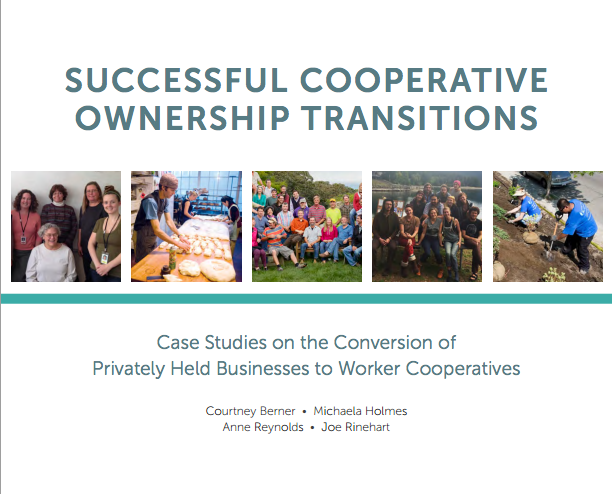With 70 percent of privately held businesses expected to change hands over the next two decades and 10,000 baby boomers retiring each day (many of whom lack succession plans), the nation has the opportunity to preserve these businesses by converting them to worker cooperatives. This new report from the Democracy at Work Institute and the University of Wisconsin Center for Cooperatives provides case studies of successful cooperative ownership transitions for cafés in Washington and Oregon; an architecture, building, and energy business in Massachusetts; a natural conservation consultancy firm in Wisconsin; and a landscaping business in Massachusetts. The authors examine how owner involvement, financing, governance structure, and other critical factors affect the conversion process and highlight the need for greater technical assistance and peer support from the cooperative community.
